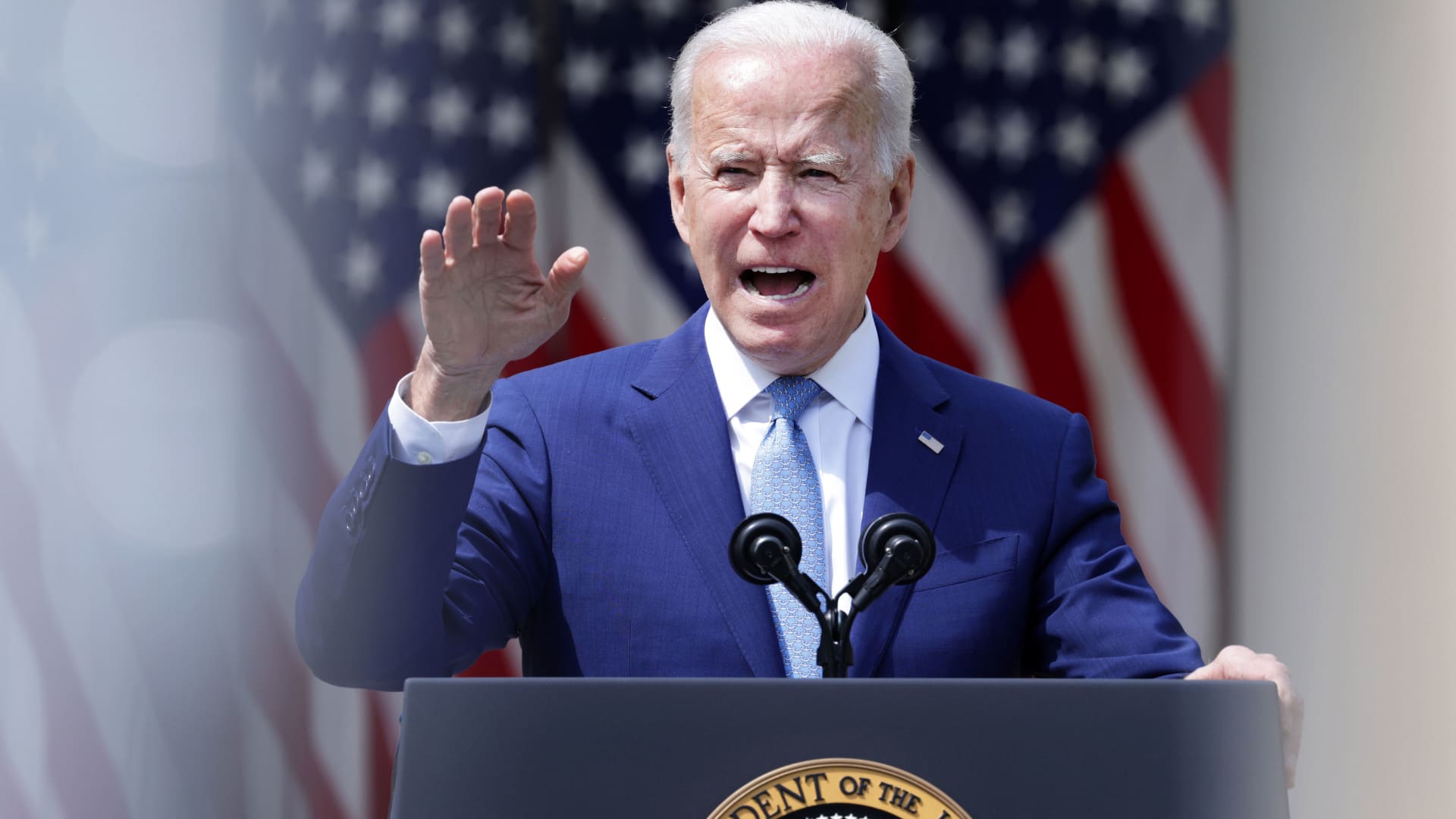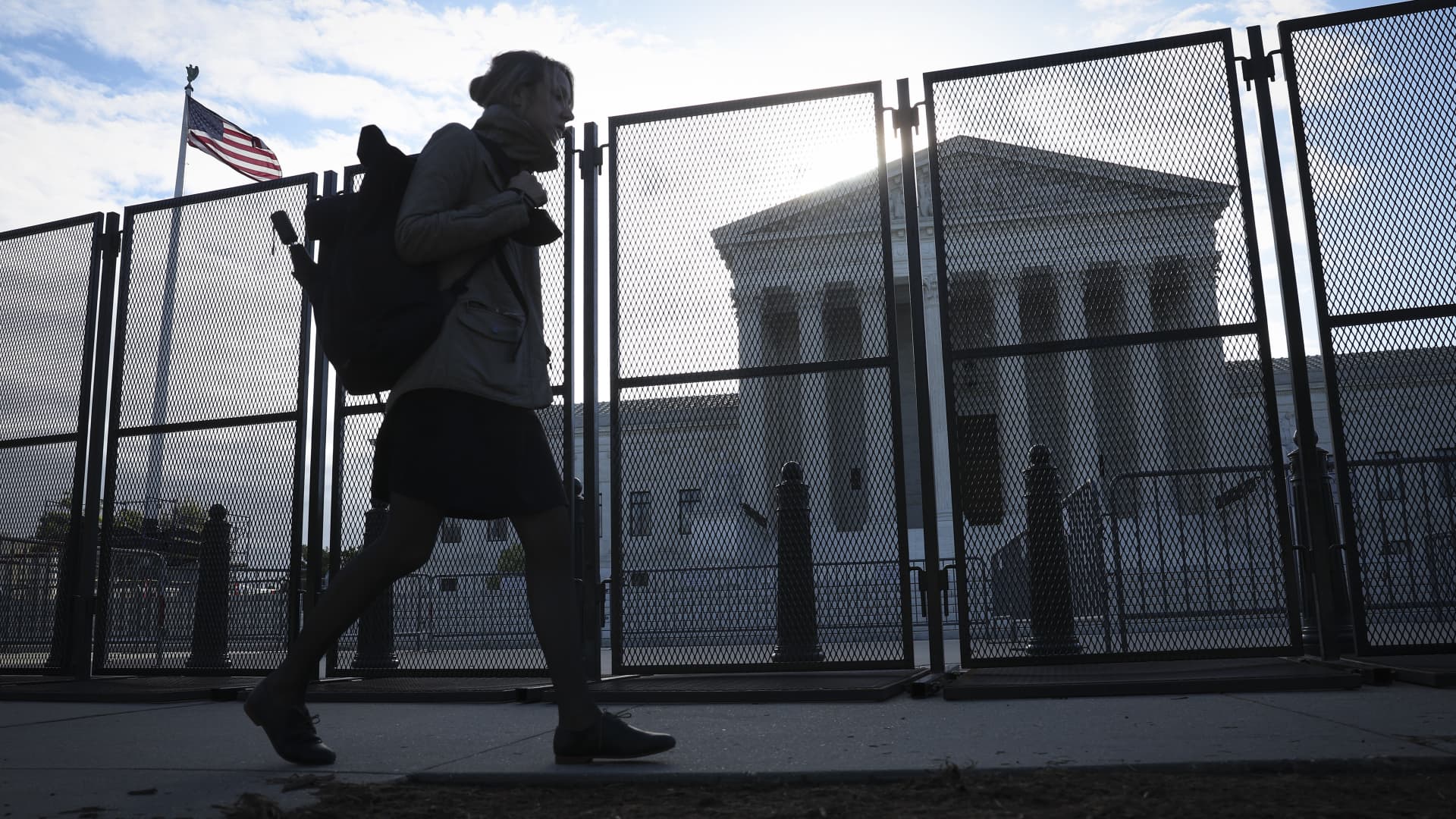House speaker succession battle heats up: Jordan, Scalise and Trump in the mix
For the second time this year, the House speaker's gavel is up for grabs, following Rep. Kevin McCarthy's unprecedented removal from the post Tuesday.

Rep. Steve Scalise (R-LA) and Rep. Jim Jordan (R-OH) speak to reporters during a break in testimony from Lt. Col. Alexander Vindman, director for European Affairs at the National Security Council, as part of the U.S. House of Representatives impeachment inquiry into U.S. President Trump led by the House Intelligence, House Foreign Affairs and House Oversight and Reform Committees on Capitol Hill in Washington, October 29, 2019.
Erin Scott | Reuters
WASHINGTON — The House speaker's gavel is up for grabs for the second time this year, and for the second time, that contest is threatening to divide the Republican caucus along ideological lines.
Reps. Jim Jordan and Steve Scalise are the top candidates to replace Kevin McCarthy, who was voted out as speaker in an unprecedented move Tuesday.
But a wild-card candidate floated by two House members was Donald Trump, the former and would-be president who faces four criminal indictments and several pending major civil lawsuits.
Republicans plan to hold a speaker candidate forum next Tuesday, followed by a possible vote the next day.
Judiciary Committee chairman Jordan was the first candidate to publicly throw his hat in the ring.
The Ohio lawmaker, who is a founding member of the hardline conservative House Freedom Caucus, was characteristically brief and businesslike as he announced his candidacy in a letter to GOP colleagues.
"We agreed at the beginning of the Congress that there are three fundamental things the House must do: pass the bills that need to be passed, do the oversight, and rein in the spending," Jordan wrote.
Jordan quickly drew some public support from colleagues, including Rep. Darrell Issa, Calif., and Rep. Tom Massie of Kentucky.
Known for his hard-charging, partisan approach to oversight and his ubiquitous shirtsleeves, Jordan is eager to do battle with Democrats and the White House.
His top rival, the Majority Leader Scalise, in his own letter to his colleagues, struck a very different tone than
"I firmly believe this Conference is a family," wrote Scalise, who represents a Louisiana district. "We must mend the deep wounds that exist within our Conference and focus on our objectives."
Scalise wrote about his 2017 near-fatal shooting, and how it had cemented his commitment to public service.
He also alluded to his recent cancer diagnosis, which had prompted some Republicans to question whether his health might prevent him from doing some of the work expected of House speakers, suchg as traveling the country raising money for GOP candidates.
Scalise is pitching himself as a consensus builder, capable of bringing a fractured caucus together.
There are signs he could do that .
Even before Scalise announced his intent to seek the speakership, Rep. Matt Gaetz, the Florida Republican who led the revolt against McCarthy, singled out Scalise as a potential replacement.
"I think very highly of Steve Scalise. I would vote for Steve Scalise," Gaetz said this week.
Scalise also has support within his and McCarthy's wing of the party. The third-ranking House Republican, Majority Whip Tom Emmer of Minnesota, mused that Scalise "would be a great speaker" on Tuesday.
Should Scalise become House Speaker, Emmer hopes to replace him as Majority Leader.
But reaching the 218 votes needed to be elected speaker, from a caucus so bitterly divided, with so little margin for error, will be difficult.
One potential consensus candidate is Rep. Kevin Hearn of Oklahoma, who leads the Republican Study Committee, a conservative caucus in the House that counts more than half of all GOP lawmakers among its members.
Hern suggested Wednesday that he would enter the race. telling reporters he was making calls to allies and "seeing if the votes are there."
Another name being bandied about was the current speaker pro tempore, Rep. Patrick McHenry of North Carolina.
Arguably McCarthy's closest ally in Congress, the House Financial Services Committee chairman has not announced he is running for speaker.
If Republicans do not manage to elect a new speaker next week and McHenry remains in the position for longer, the popular, veteran lawmaker could use the time to build support for making his tempory job a permanent one.
Whoever is elected will likely need the support of Trump, the current frontrunner for the Republican presidential nomination in 2024.
At least two House members also floated Trump as a potential speaker, a position that does not need to be held by a House member.
Rep. Marjorie Taylor Greene of Georgia wrote that Trump was "the only candidate for Speaker I am currently supporting" in a post on the social media site X late Tuesday.
Rep. Troy Nehls of Texas said he would nominate Trump.
Trump is currently the main defendant in a civil business fraud trial in Manhattan
On Wednesday, while attending the trial, he was asked he would agree to be House Speaker.
"All I can say is we will do whatever is best for the country and other Republican Party and people," Trump told reporters.
Several hours later, Trump posted a composite image of himself in the House chamber holding the House speaker's gavel. He did not post any text.

 Tfoso
Tfoso 
































